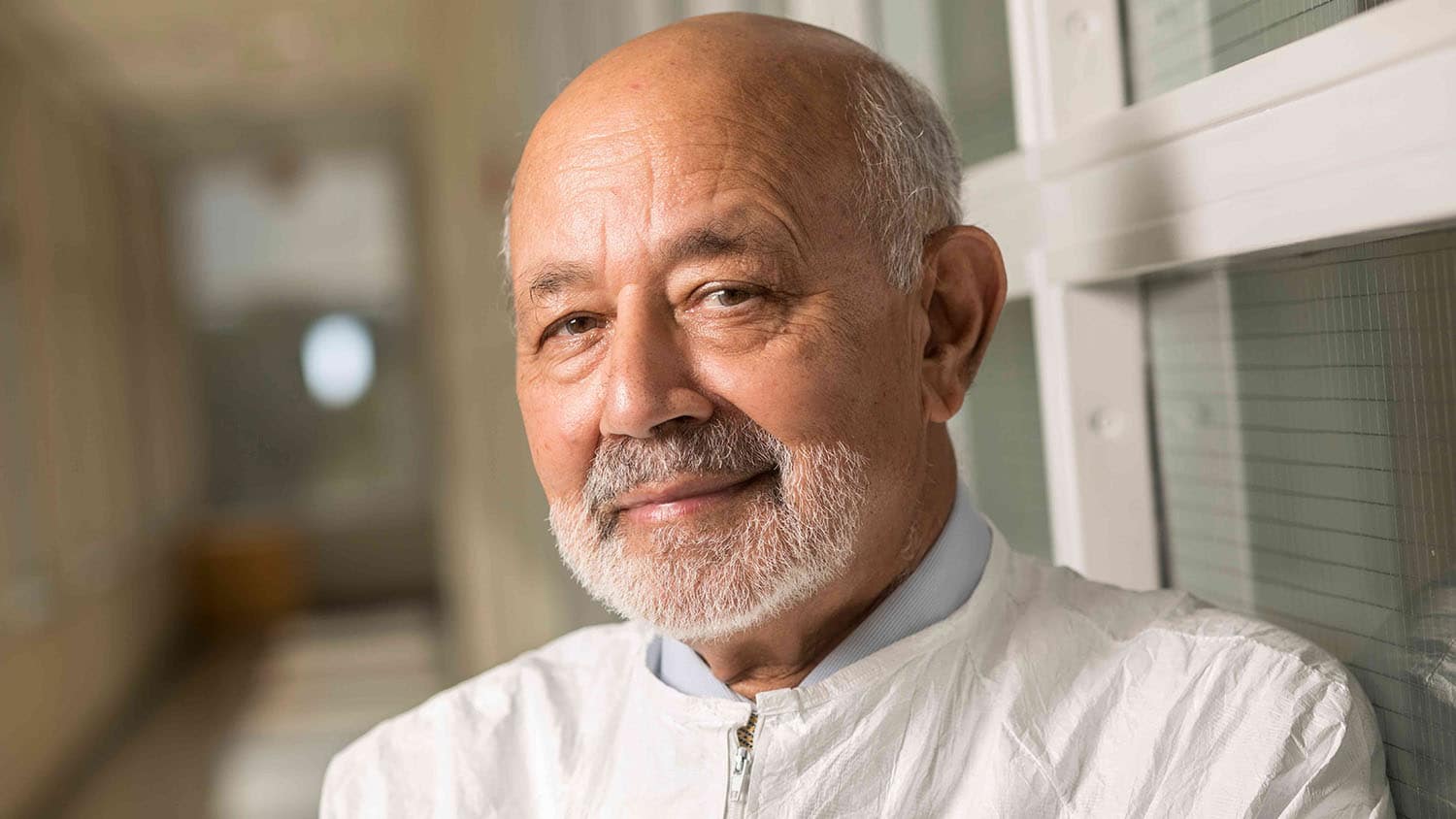NC State’s Jayant Baliga Wins Millennium Technology Prize

For Immediate Release
North Carolina State University Professor B. Jayant Baliga has been awarded the 2024 Millennium Technology Prize for his work on the invention, development and commercialization of insulated gate bipolar transistors (IGBTs), which play a critical role in energy efficiency for technologies worldwide. The Millennium Technology Prize, which comes with a €1 million award, is the most prestigious international award focused on recognizing technological innovation.
The IGBT is an energy-saving semiconductor switch that controls the flow of power from an electrical energy source to any application that needs energy. The IGBT improves energy efficiency by more than 40 percent in an array of products, from cars and refrigerators to light bulbs, and is a critical component enabling modern compact cardiac defibrillators.
The IGBT has reduced global carbon dioxide emissions by over 82 gigatons (180 trillion pounds) over the past 30 years. This is equivalent to offsetting carbon dioxide emissions from all human activity for three years, based on average emissions of the past 30 years.
“The IGBT has already had and continues to have a major impact on supporting sustainability with improved living standards worldwide, while mitigating environmental impact,” says Minna Palmroth, chair of the Board of Technology Academy Finland, the foundation which awards the Millennium Technology Prize. “The main solution to tackle global warming is electrification and moving to renewable energy. The IGBT is the key enabling technology in addressing these issues.”
“It is very exciting to have been selected for this great honor,” says Baliga, who is the Progress Energy Distinguished University Emeritus Professor of Electrical and Computer Engineering at NC State.
“I am particularly happy that the Millennium Technology Prize will bring attention to my innovation, as the IGBT is an embedded technology that is hidden from the eyes of society. It has enabled a vast array of products that have improved the comfort, convenience and health of billions of people around the world while reducing carbon dioxide emissions to mitigate global warming. Informing the public of this impactful innovation will illustrate the betterment of humanity by modern technology.”
Baliga’s portfolio of 123 U.S. patents includes many other inventions that have also been commercialized. The split-gate power MOSFET is widely manufactured for use in laptops, PCs and servers. And his silicon carbide inventions – including the JBS rectifier and shielded channel power MOSFET – are used in a variety of state-of-the-art electrical power management technologies.
Baliga – who Forbes has called “the man with the world’s largest negative carbon footprint” – continues to work on technological challenges related to energy efficiency. He and his collaborators are currently working on new inventions to improve efficiencies related to solar power generation, electric vehicles and power delivery for AI servers.
The Millennium Technology Prize will be presented to Professor Bantval Jayant Baliga in Finland on Oct. 30 in an award ceremony that also celebrates the 20th anniversary of the prize. The prize will be presented by its patron, the president of Finland.
The €1 million Millennium Technology Prize is the preeminent award focused on technological innovations for a better life. This includes work that improves human well-being, biodiversity and wider sustainability. Overseen by the Technology Academy Finland, it was first awarded in 2004, and its patron is the President of Finland. Winners are selected by a distinguished international panel of experts from academia and industry. Innovations must be backed up by rigorous academic and scientific research and fulfill several criteria, including promoting sustainable development and biodiversity, having generated applications with commercial viability, and creating accessible socio-economic value.
Past winning innovations range from DNA sequencing that helped to develop COVID-19 vaccines, to ethical stem-cell research and versatile, affordable smart technology. Visit the Millennium Prize website for more information.
-shipman-


